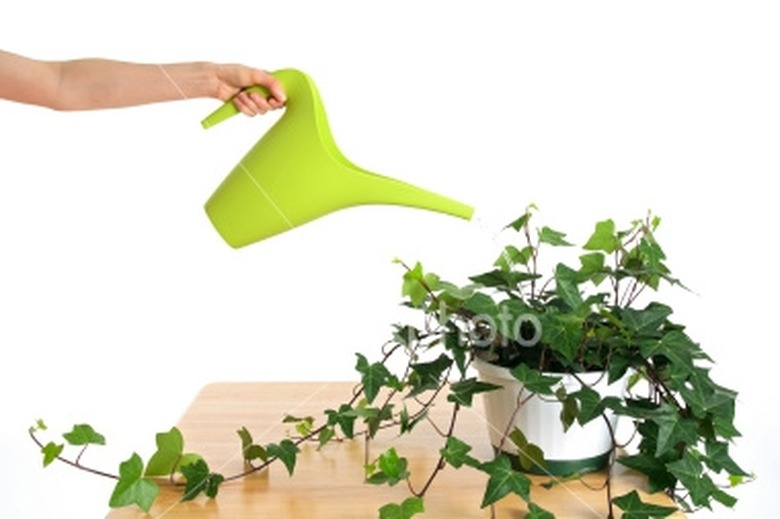The Effects Of Tap Water On Plants
House plants need two basic things: water and light. The best water for your plants is free of impurities such as minerals and chemicals. Can you just fill your watering can from the tap, or will that water have a bad effect on your plants?
Straight from the tap?
Straight from the tap?
The advantage of using water from the tap is that it's cheap and readily available. For many people, straight from the tap is fine. Make sure it's not too hot or cold; room temperature is just right. Others have tap water loaded with minerals or chemicals that can harm plants. They can use tap water as well, as long as they take some simple precautions.
Chlorine
Chlorine
Chlorine, which some municipalities use to kill disease-causing microorganisms, is bad for plants. Chlorine is a gas that evaporates out of water easily, so unless the water coming out of your tap has a distinct smell of chlorine, you don't need to worry about it. If you smell chlorine, let the water sit for 24 hours before using it on your plants. Use clean, empty milk jugs or soda bottles to hold the water while it "breathes."
Hard Water
Hard Water
Some areas have "hard" water that has excessive amounts of minerals (mostly magnesium and calcium). These minerals are bad for your plants, so you shouldn't use hard water directly on them. You also shouldn't use hard water that's been run through a household softener; the salt used in softeners is also bad for the plants. If you've got hard water, filter it with a simple carbon-type filter from the hardware store. You can also use a pitcher-type filtering system sold for drinking water. This filtering removes the minerals without adding other chemicals.
Low Levels of Minerals
Low Levels of Minerals
Over time, even filtered tap water can leave buildups of minerals and salts on your plants. This is visible as a thin, whitish crust on the surface of the soil. If you get this buildup, flush your plants once a year. To flush, run a gentle stream of water through the soil in the pot until water comes out the bottom; then keep watering for another couple minutes. You can do this in the tub, or outside in nice weather. Let the pot finish draining before you put it back in its regular spot.
Other Sources
Other Sources
Some people buy bottled water for their houseplants. If you've only got one or two plants, that might make sense; otherwise it's unnecessarily expensive. Instead, get good chemical-free water for free: Collect rainwater. Put buckets out before it rains, then store the water you catch in empty milk jugs or other bottles till you need it.
Final Tip
Final Tip
Wherever you get your water, use it wisely. Don't over-water your houseplants. Far more houseplants are killed by over-watering than under-watering. Never water your plants without checking first to see if they need it. Stick your finger about an inch down in the soil. Unless that entire inch of soil is dry, don't water.
